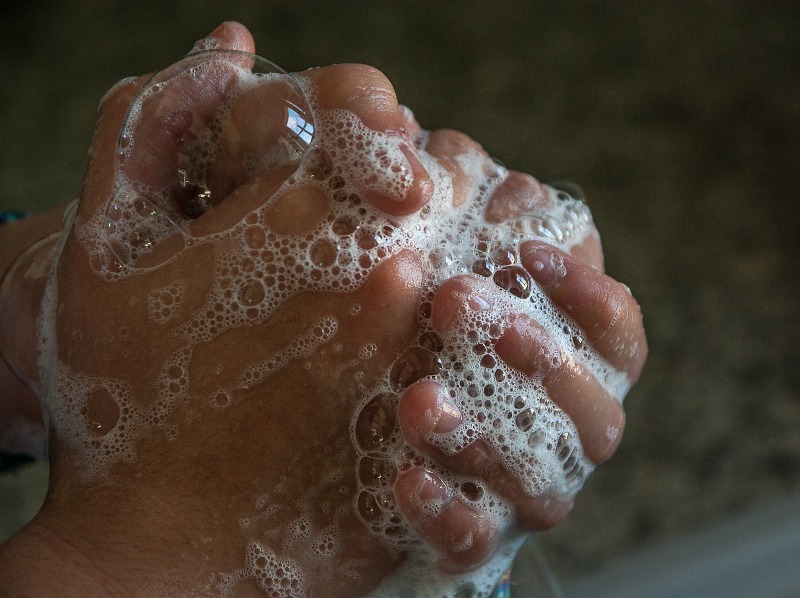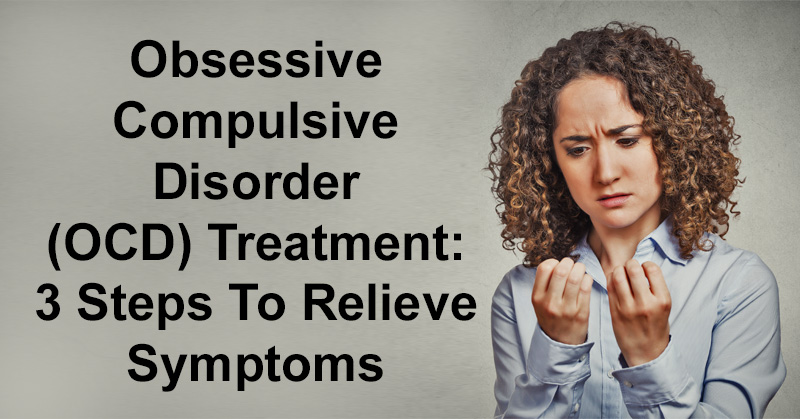Are you suffering from obsessive-compulsive disorder? If so, then these three steps may help relieve your symptoms. A natural OCD treatment can help you cope.
Approximately 1 in 40 adults in the United States and 1 in 100 children suffer from obsessive compulsive disorder. (1) OCD causes persistent, uncontrollable thoughts or impulses that can disrupt a person’s daily life. Some patients with OCD may have a fear of germs or contaminated and be obsessed with cleaning and handwashing. Others may fixate on numbers and feel a strong need to count things over and over again. (2)
But why? Most researchers believe that a chemical or hormonal imbalance in the brain plays a role in the disorder. (2) Unfortunately, conventional OCD treatment may involve medications to help prevent impulses. On the other hand, natural treatment focuses on living a healthy lifestyle by reducing stress and finding social support.
OCD Types (3)
- Washers: usually fear germs contamination, becoming dirty or sick
- Hoarders: find it very hard to throw things out or give things away
- Doubters: strongly fear being wrong, rejected, blamed or ridiculed
- Checkers: fear being harmed from perceived dangers such as fires, robbers or animals
- Counters: tend to fixate on numbers and need to count things over and over again
- Arrangers: fixate on order, patterns, balance and symmetry

OCD Symptoms
- Obsessive thinking that usually involves repeated thoughts and urges that are hard to stop or ignore
- A loss of control over thoughts and behaviors
- Extreme anxiety when rituals/compulsions are not performed or are interfered with
- Repeated mental images that cause anxiety
- Irrational fears about germs, illnesses and contamination
- Feelings of aggression, fear and loss of control
- Strong aversions or feelings against “taboos” such as sex, religion or violence
- Needing to have things in a certain order, place, pattern or quantity
- A drive for excessive cleaning and/or handwashing
- Needing to repeatedly check on anything that seems threatening (for example, checking to see if things are locked, unplugged or clean)
OCD Treatment
1. Reducing Anxiety
General anxiety is often at the root of OCD. Learning to manage stress levels is an important part of OCD treatment. Certain lifestyle habits can serve as natural treatments for OCD to help lower anxiety, improve sleep and help a patient better handle stressful situations. Treatment for OCD includes:
- A Healthy Diet: A diet full of packaged, processed foods and sugar leads to inflammation in the body, which can cause moodiness, fatigue and weight gain. Too much sugar can also cause feelings of nervousness and anxiety. An OCD treatment diet should include plenty of anti-inflammatory foods such as coconut oil, olive oil, nuts, seeds and fresh herbs and spices. Taking a high-quality B vitamin can also help combat anxiety.
- Exercise: Regular exercise can help lower stress levels, reduce inflammation in the body and boost your mood. Exercise can work as a natural treatment for OCD to promote relaxation, lower muscle tension and reduce anxiety. (4)
- Sleep: Sleep deprivation can increase anxiety levels and boost stress hormones. Aim for 7-9 hours of sleep per night to help manage stress levels, balance hormones, prevent fatigue and reduce mood swings. (5)
- Meditation: Studies have shown that meditation and mindfulness practices can help significantly improve OCD symptoms. Meditation can serve as a safe, effective and low-cost OCD treatment. Living more consciously in the present can help control symptoms and compulsions associated with OCD. (6)

2. Cognitive Behavioral Therapy
Cognitive behavioral therapy or CBT can be a highly beneficial form of OCD treatment. In CBT treatments, the patient and therapist both take active roles in deciphering the underlying causes of certain OCD symptoms and urges. Unlike traditional psychotherapy, CBT focuses less on the past and more at the present time. Therapists work with patients to help them deal with their OCD on a day-to-day basis. (7)
3. Social Support
Having the support of family members, friends and therapists can go a long way in overcoming OCD. Many people with OCD feel isolated or embarrassed due to their impulses. Social support can help reduce feelings of helplessness and isolation. Consider joining a support group or talking to a professional about your OCD. Invest your time and energy into something you enjoy, to help combat negative thoughts and feelings. (8)


